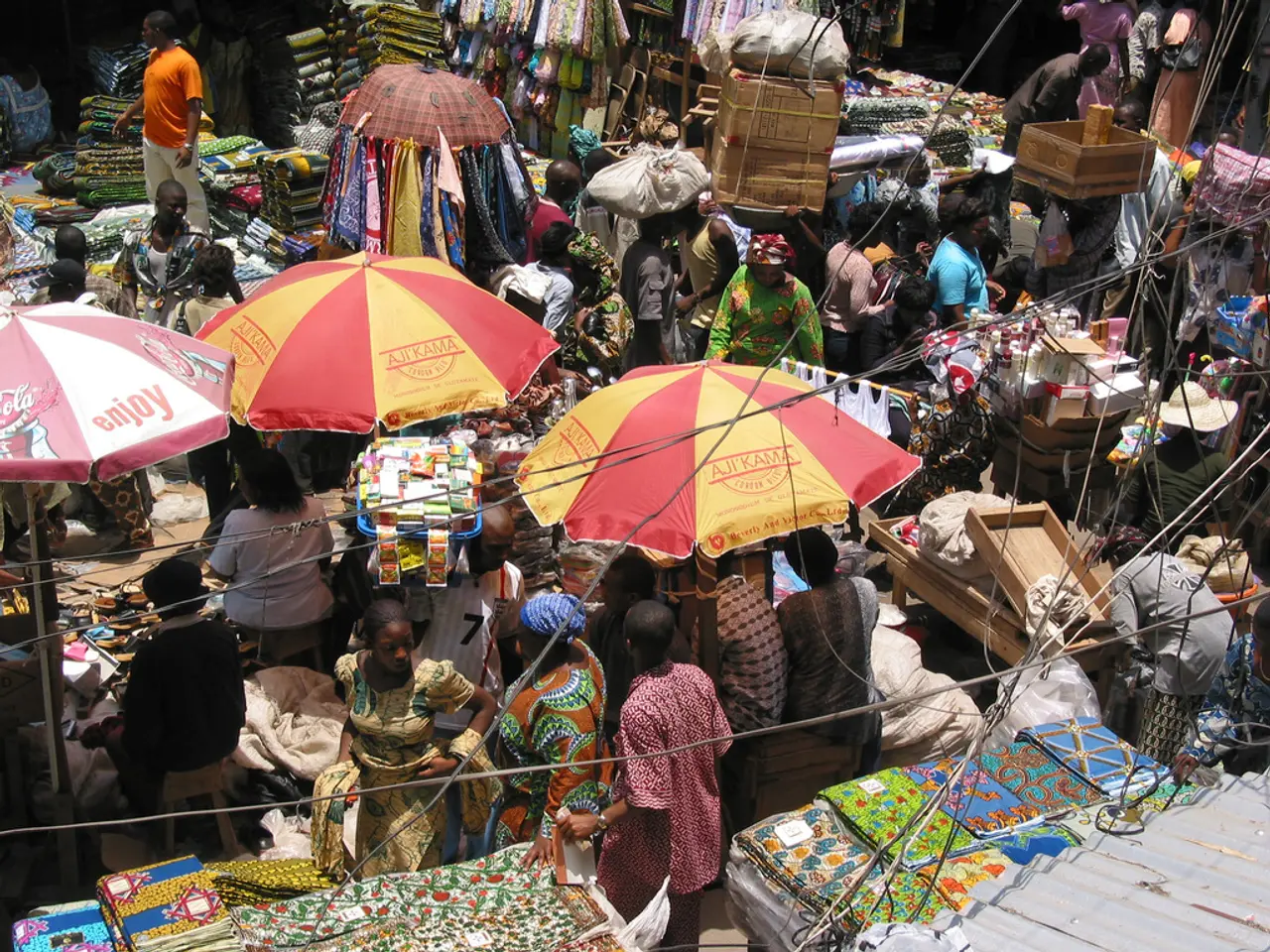Understanding Globalization: Insights for Investors and Business Owners Globally
In the modern world, economic globalization has become a defining force, shaping the way we live, work, and interact. This phenomenon manifests in several key dimensions, including economic, cultural, and political globalization.
Economic globalization, in particular, emphasizes the intensified cross-border exchange of goods, services, labor, capital, and technology. This process is driven by several factors, including technological advancements, trade liberalization, shifts in global economic power, geopolitical dynamics, and broader global trends.
Technological advancements, such as digital communication, internet, mobile, and cloud computing, enable seamless global operations and real-time collaboration across borders. Trade liberalization, through reduced tariffs and free trade agreements like USMCA and the European Union single market, facilitate easier international trade and investment.
The rising prominence of countries like China and India, along with emerging economies like Indonesia, Egypt, and Nigeria, reshape economic influence and markets. Geopolitical dynamics, including U.S.-China relations and trade policies, significantly affect global supply chains and trade flows.
These forces collectively drive a transformation in the global economy from the post-Cold War era’s integrated model toward one characterized by fragmentation, multipolarity, and evolving economic hierarchies.
Businesses benefit from access to larger, more diverse markets and can optimize operations through offshoring and international supply chains facilitated by advanced technologies and trade agreements. However, they must adjust strategies to navigate geopolitical uncertainties and the rise of competing technological ecosystems.
Consumers gain access to a wider variety of goods and services, often at lower prices due to global competition and efficiencies. However, increased geopolitical fragmentation and economic power shifts create risks such as supply chain disruptions, regulatory complexity, and uneven economic growth.
Cultural globalization, on the other hand, refers to the transmission of ideas, values, and ways of life across borders. The communication revolution has transformed how we connect and access information globally, with a growing majority of the population enjoying internet access.
The transportation revolution has significantly reduced costs and increased speed, with air travel passenger numbers doubling from 2009 to 2018. This has led to a rise in the movement of people across borders due to factors like seeking better job opportunities and educational advancements.
However, there's a potential for cultural homogenization as global brands and media content gain prominence, putting pressure on local traditions and customs. Navigating cultural differences is crucial for success in a globalized environment, as business practices, communication styles, and consumer preferences can vary significantly across cultures.
In conclusion, economic globalization today is propelled by technology, trade liberalization, demographic and economic shifts, and geopolitical complexity. This creates both opportunities for business growth and efficiency and challenges related to uncertainty, fragmentation, and competition in global markets. It's a process that leads to increased interaction and integration in economic, financial, trade, and communication fields, shaping the world we live in today.
Investing in businesses can leverage the opportunities presented by economic globalization, as they gain access to larger, more diverse markets and can optimize operations through offshoring and international supply chains. On the other hand, education and self-development are essential for navigating cultural differences in a globalized environment, as business practices, communication styles, and consumer preferences can vary significantly across cultures.




